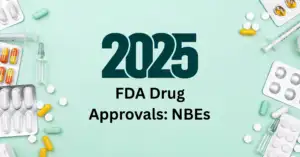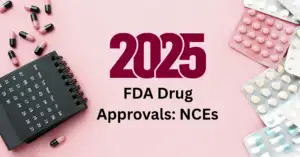Recently, a few clinical trial sponsors approached us because they were facing a challenge in distinguishing between a genuine and counterfeit pack of an Immuno-Oncology Drug.
Do you know whether the comparator drug sourced for your clinical trial is genuine or counterfeit?
How does that even matter?
What impact can it make?
To seek answers to all your questions, explore the full blog for comprehensive insights.
What Are Counterfeit Comparator Drugs?
Counterfeits are fake products that try to imitate the original products made available by non-bona fide manufacturers. They are manufactured and packaged fraudulently by syndicates that operate in counterfeiting medicines. Counterfeits may lack active ingredients or have incorrect dosages, and in some cases, they can be both.
They are manufactured to deceive consumers and earn profits through wrongdoing. Counterfeits pose health risks if consumed by patients, whether in real life or in clinical trials. It directly affects patient safety and has a negative impact on the patients.
Challenges Faced by Clinical Trial Sponsors
In today’s complex pharmaceutical landscape, clinical trial sponsors face a critical challenge in the form of counterfeit products released in the clinical trial supply chain. These counterfeit products can jeopardize entire drug development programs.
The integrity of reference products used in biosimilar and generic drug development is crucial. However, comparator sourcing from legitimate supply chains poses a major challenge nowadays.
The Hidden Danger in Comparator Sourcing for Clinical Trials
When pharmaceutical companies develop a new drug, they must test their products against the original branded drug, a comparator. Unfortunately, the global supply chain for these comparator drugs is quite vulnerable to counterfeit or spurious drugs.
Let’s understand the difference between spurious drugs and counterfeit drugs.
- Spurious drugs may contain inactive ingredients or placebos and lack the active pharmaceutical ingredient that is responsible for the therapeutic effect of the drug.
- Counterfeit drugs might contain inappropriate active ingredients and may contain poor and insufficient quality of the active ingredients.
Counterfeit Drugs-A Global Challenge, Not Just a US Problem
Recently, counterfeit packs of popular obesity drugs flooded the US market due to the shortage of the drug supply, creating a news headline. However, this isn’t limited to the United States; counterfeit drugs represent a global challenge that impacts clinical practice as well as clinical trials worldwide.
According to the World Health Organization, an estimated 1 in 10 medical products in low—and middle-income countries are substandard or falsified. This problem threatens clinical research and public health globally.
The Real-World Impact on Clinical Development
Unintentionally using counterfeit comparator drugs in your clinical trials can lead to the following complications:
- Directly affects patient safety and poses health risks
- Direct impact of study results
- Issues with data governance and data integrity
- Wastage of financial, time, and human resources
- Could result in regulatory complications
Root Causes of Comparator Sourcing Challenges

Several factors contribute to the growing problem of identifying counterfeit drugs:
- Complex Distribution Channel: Comparator drugs are handled and distributed through multiple distributors, making it difficult to verify the complete clinical trial supply chain.
- Budget Constraints: The cost of the drugs may lead companies to source from illegitimate suppliers offering lower prices
- Supply Shortages: Shortages in the comparator drug supply create opportunities for counterfeit products to enter the supply chain.
- Global Regulatory Variations: Different regulatory standards across countries create vulnerabilities in the international supply chain.
Case Study: Immuno-Oncology Trial Rescue
Recently, a few clinical trial sponsors encountered counterfeits while sourcing comparators for immuno-oncology studies. They were suspicious about the authenticity of their sourced products, and hence, they turned to Spring Bio Solution to solve their problem.
Spring Bio Solution’s Strategic Approach to Reliable Comparator Sourcing
Strategic comparator sourcing requires a comprehensive approach that Spring Bio Solution has brought forward in the form of the 360ScopeTM platform:
- Provide clinical sponsors with a detailed situational analysis to identify potential risks in the drug market
- We help sponsors identify and avoid counterfeit or substandard drugs with our market intelligence.
- Align sponsors’ specific requirements with the current market dynamics for optimal outcomes.
- Facilitate seamless comparator sourcing for a hassle-free process.
Safeguarding Your Clinical Trial Success
As counterfeit drug cases are increasing, pharmaceutical companies need to take a strict call to action to secure a reliable and precise comparator drug. Working with a reliable clinical trial supplies company helps to tackle these challenges to protect clinical trial integrity.
The growing prevalence of counterfeit comparators makes implementing robust sourcing strategies more critical than ever for companies developing biosimilars, generics, or conducting comparative studies with innovator products.
Taking Action
If your organization is developing pharmaceuticals that require comparator sourcing for clinical trials, consider these proactive steps:
- Assess your current sourcing methodology for genuineness
- Flag the possible vulnerabilities and the critical steps
- Check and verify steps throughout the entire supply chain process to ensure the authenticity, quality, and traceability of the comparator drugs.
- Partner with clinical trial companies that have established relationships with legitimate suppliers
- Build contingency plans for potential authentication challenges
Companies facing the challenge of identifying genuine products can benefit from expert guidance to navigate the complex landscape of comparator sourcing. Schedule a consultation with Spring Bio Solution’s experts to discuss how our 360ScopeTM approach can protect your clinical development program.
Are you facing challenges with comparator sourcing for your clinical trials? Contact Spring Bio Solution today to discuss your needs and ensure the integrity of your development program.
FAQs:
What are counterfeit comparator drugs, and what concerns do they pose in clinical trials?
Counterfeit comparator drugs are fraudulently manufactured or packaged. These drugs lack the active ingredients or contain inaccurate dosages. The concerns posed by the accidental release of comparator drugs in the clinical trial supply chain include compromising the accuracy of trial data, risking participant safety, and leading to the rejection of trial results by regulatory authorities.
How can counterfeit drugs impact the outcome of a clinical trial?
The use of counterfeit drugs in clinical trials can disrupt the drug development timeline and negatively affect the quality of results. These drugs can produce misleading efficacy or safety data, potentially delaying approvals or leading to the complete failure of the clinical trials.
What are the key challenges in sourcing genuine comparator drugs for clinical trials?
Clinical trial sponsors face multiple challenges when sourcing genuine comparator drugs. Due to the complexity of the pharmaceutical supply chain, as drugs pass through multiple distributors, it makes it difficult to trace the movement and track authenticity.
What is the difference between spurious and counterfeit drugs?
Spurious drugs are typically formulations that lack the required active pharmaceutical ingredient. In comparison, counterfeit drugs are fake medicines from an illegitimate source.
What steps can clinical trial sponsors take to avoid counterfeit comparator drugs?
To avoid counterfeit products, sponsors should evaluate their sourcing strategies and verify each step of the supply chain for authenticity, quality, and traceability. Working with established clinical trial supply companies with direct relationships with legitimate manufacturers can minimize risk.





